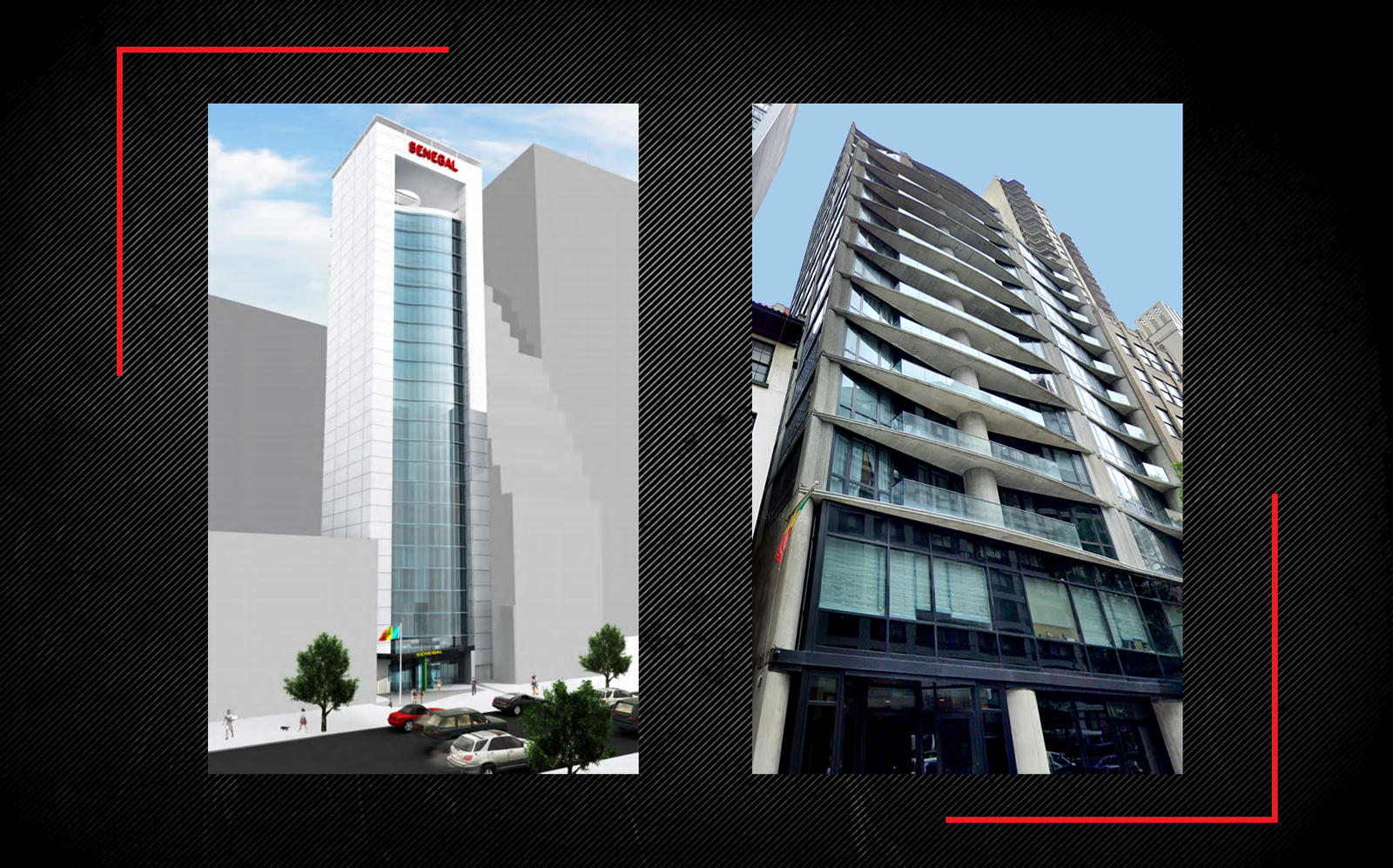Months after the Senegalese government paid $25 million for a bulk condo purchase at a controversial Midtown tower it developed, an architect on the project claims the country owes him millions in unpaid fees.
Pape Diedhiou, who is based in New York City, filed a $2.4 million lawsuit following a years-long effort to collect payment, he claims. Filed last week in federal court in New York, it marks the second time Senegal has faced legal action over the development.
Diedhiou served as Senegal’s representative on the project beginning in 2007, as the country prepared to acquire the property at 235 East 44th Street, records and court documents show. He was appointed by Paul Badji, the Permanent Representative of Senegal to the United Nations, according to an agreement he filed in court.
According to the lawsuit, Diedhiou said his work on the project between 2008 and 2014 included interior design and architectural services, in addition to handling approvals, tax payments and other financial matters. Over the years he claims he paid a total of nearly $130,000 in out of pocket expenses for items such as insurance, legal fees and business trips to meet with Senegalese officials in the capital Dakar and in Paris.
Though Diedhiou admits he never had a written contract, he notes that he delivered his services to some of the country’s highest-ranking officials. Those included former president of Senegal Abdoulaye Wade and his wife, Viviane; along with a special adviser to the president and three former ministers.
J.R. Skrabanek, a partner at Thompson & Skrabanek who is representing Diedhiou in the suit, argued a legal obligation was established over multiple meetings and years of work that the architect performed.
Senegal’s representatives at the highest levels “repeatedly” told Diedhiou he would be paid, Skrabanek said in an interview. “He’s been asking to be paid for a long time and they’ve just put him off for forever,” he said.
Senegalese officials in the U.S. did not respond to requests for comment.
Read more



Wade’s Midtown condo project drew criticism at home, according to Adama Gaye, a Senegalese political commentator and journalist. He fled the country following his arrest last year for speaking out against the president, and now lives in Egypt.
“This project started off out of the whims of Abdoulaye Wade, the quasi monarchical president of Senegal, without consultation of the National Assembly nor the population,” wrote Gaye in a statement. “That original sin, clouded with corruption and cronyism, has dogged it.”
Wade also commissioned a controversial $27 million monument in Dakar — built by North Korea — that was unveiled in late 2009. Diedhiou, who immigrated to the U.S. from Senegal 30 years ago, says he is the nephew of prominent Sengalese architect Pierre Goudiaby, who worked on prominent projects including the Dakar monument, which was built with public funds.
The 19-story Manhattan tower, located blocks from the United Nations and completed in 2016, was envisioned as a hub for Senegal’s diplomatic efforts in New York City, according to Diedhiou.
Half of the building, dubbed “Senegal House,” was to be used to host foreign dignitaries in facilities that included offices, entertainment and auditorium spaces. The country would also rent out about half of the building as office space, earning money on that and as a venue for events, Diedhiou recalled through his attorney.
The building’s upper floors included residences for diplomats, and a lavish triplex, labeled the presidential suite, was slated for the top of the building, according to designs Diedhiou prepared in 2010 and filed as part of his suit.
Wade lost his campaign for a third term as president in 2012, but his successor, Macky Sall, continued the Midtown project, which ran into legal troubles in New York City the next year. In spring 2013, Glacier Global Partners sued the country for allegedly backing out of a joint venture to develop the tower and opting for another partner. The suit was disposed of within six weeks and records are sealed.
This past spring, Senegal bought back roughly two-thirds of the building — which has been divided into blocks of commercial and residential condos — from its development partner, Pride Builders, for a total of nearly $25 million.
Based on the building’s floor plans, it appears Senegal House did not materialize. Instead, the tower was converted into rental apartments with a two-story commercial space at the base of the tower. The planned presidential suite is now a recreation area for tenants. Asking rents range from $2,700 to more than $6,000 a month, according to StreetEasy.
For Gaye, the project symbolizes failure, regardless of whether it generates revenue.
“No matter how useful for the country ultimately, this is a symbol of the bad economic governance that is plaguing the country,” he said.
Write to Erin Hudson at ekh@therealdeal.com
